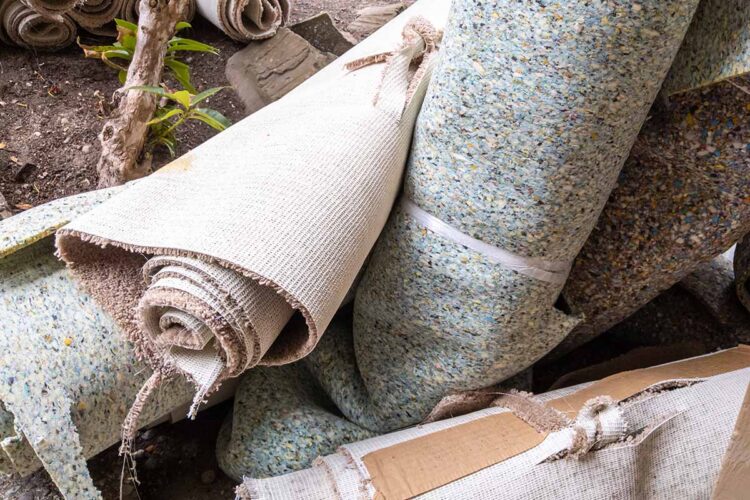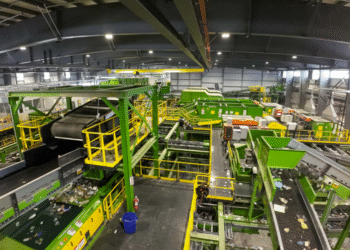California’s extended producer responsibility program for carpet achieved a sharp increase in the recycling rate last year, jumping 7 percentage points from the prior year.
Carpet America Recovery Effort (CARE), an industry-funded nonprofit group that manages California’s carpet recycling program, reported that the carpet recycling rate in 2021 was 27.9%, up from 20.9% in 2020. That’s by far the highest it has been in the decade-plus the program has been operating.
The data was included in an annual report submitted by CARE to the California Department of Resources Recycling and Recovery (CalRecycle).
CARE noted that its program plan called for a 26% recycling rate in 2021. The group pointed to a continuous upward trend in the recycling rate over the past five years.
“The Program’s COVID-19 Action Plan and strategic market development efforts in support of new Processor end-market outlets have supported that ongoing growth, even in the face of a continuing global pandemic,” according to the report.
Data shows the rate increased for a couple of reasons. The rate is calculated by the weight of what’s actually recycled, called the recycled output, by the total weight of all carpet generated in the waste/recycling stream. The report noted that the total weight collected for recycling increased in 2021 by about 14%. Also contributing to the higher rate, however, was the fact that a greater percentage of what was collected was ultimately recycled, meaning there was less residue. The yield of collected scrap carpet increased from 68% in 2020 to 76.4% in 2021. That was the program’s highest-ever yield rate, and it exceeded the plan’s goal of 60%.
At about 28%, California’s carpet recycling rate is now roughly on par with the national average recycling rates for PET and HDPE natural bottles, according to U.S. EPA statistics for 2018, the most recent year for which data is available. Nationwide, the carpet recycling rate was 9.2% in 2018.
The report brings some good news to a program that has long been troubled. For years, CalRecycle regulators have decided CARE has been failing to meet state standards for the program, resulting in plan rejections, financial penalties and legal wrangling. State lawmakers even stepped in and passed a bill changing the program and requiring a 24% recycling rate by 2020.
Earlier this year, CalRecycle officials approved program goals calling for a 31% recycling rate for 2023.
In a Sept. 7 press release, CARE said the 2022 recycling rate has been 32.4% year to date.
California has the nation’s only operating extended producer responsibility program for carpet, although New York lawmakers earlier this year passed a carpet EPR bill. CARE opposes EPR, preferring free-market-based solutions to boost carpet recycling.































